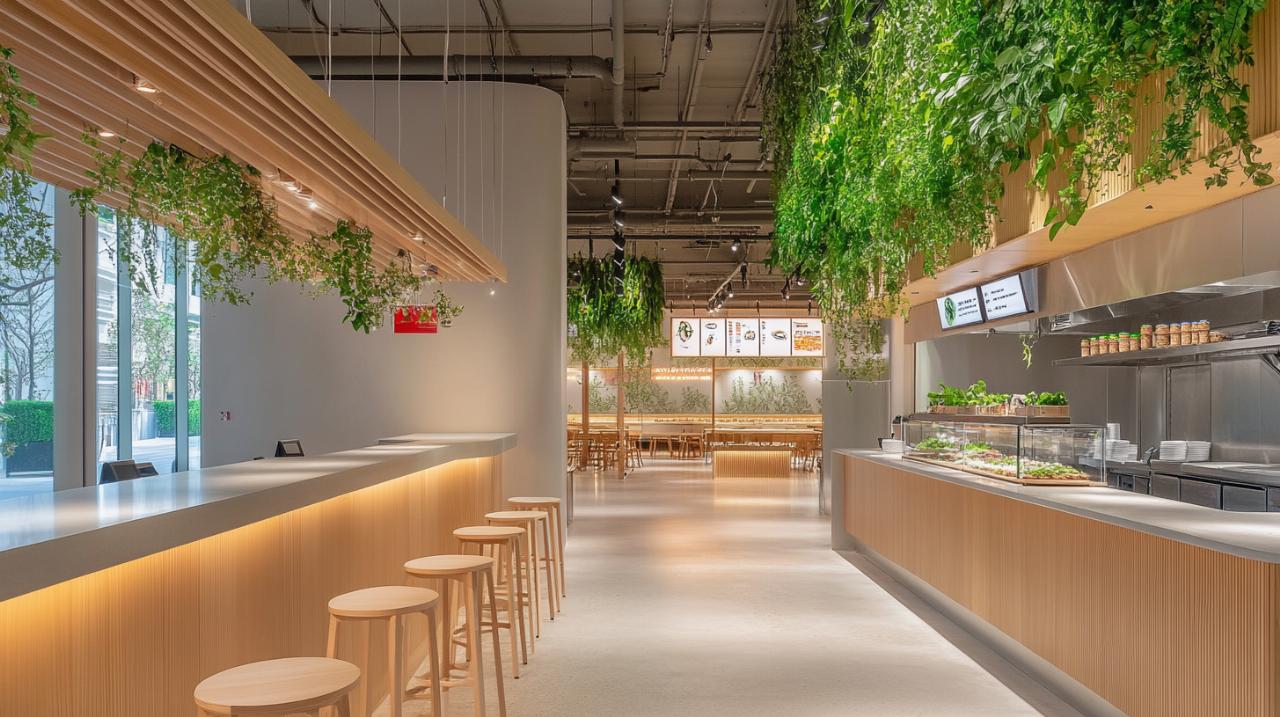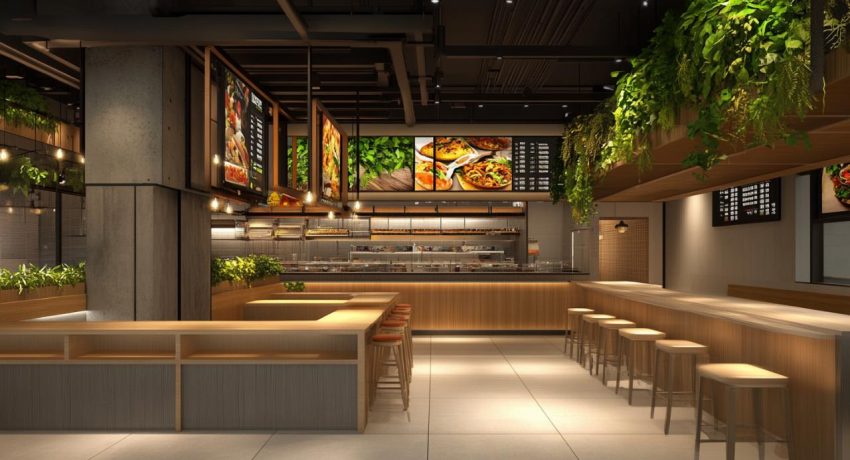Fast food chains have long been associated with convenience and speed, but the environmental cost of this rapid service model is becoming increasingly difficult to ignore. With mountains of packaging, single-use plastics, and alarming volumes of wasted food, the sector finds itself at a crossroads. However, a growing number of outlets are now pioneering changes that marry efficiency with environmental responsibility. These establishments are discovering that sustainable living practices not only reduce their carbon footprint but also resonate deeply with customers who care about the planet.
Embracing recyclable and biodegradable packaging solutions
One of the most visible transformations in the fast food industry revolves around packaging. Traditional materials, often derived from petroleum-based plastics, persist in landfills for centuries, contributing to a mounting environmental crisis. Forward-thinking chains are now turning to recyclable and biodegradable alternatives that break down naturally and reduce long-term harm. By transitioning to materials that align with sustainable living practices, these businesses demonstrate a commitment to protecting the environment while maintaining the practicality that customers expect.
The shift towards compostable food containers
Compostable food containers represent a significant leap forward in reducing the environmental impact of takeaway meals. Made from plant-based fibres, these containers decompose into nutrient-rich compost rather than lingering as waste. Several major chains have already introduced such packaging, replacing polystyrene clamshells and non-recyclable wrappers with materials that return to the earth within months. This shift not only diverts waste from landfills but also addresses the issue of methane emissions, a potent greenhouse gas released when organic materials decompose anaerobically. By choosing compostable options, fast food outlets play a crucial role in mitigating climate change and supporting a circular economy where resources are continuously cycled back into productive use.
Benefits of Recyclable Packaging for the Environment
Recyclable packaging offers another avenue for reducing waste, particularly when paired with robust collection and processing infrastructure. Materials such as cardboard, paper, and certain plastics can be reprocessed into new products, conserving raw materials and energy. The hospitality sector, which generates significant waste, stands to benefit enormously from widespread adoption of recyclable packaging. By ensuring that wrappers, cups, and boxes can re-enter the supply chain, fast food chains reduce their reliance on virgin resources and lower their carbon footprint. Moreover, recyclable packaging often requires less energy to produce than traditional alternatives, further enhancing its environmental credentials. Customers, increasingly aware of the impact of their choices, are more likely to support businesses that prioritise recyclability and transparency in their packaging decisions.
Implementing effective food waste composting schemes
Food waste remains one of the most pressing challenges facing the fast food industry. The hospitality sector discards over a million tonnes of food annually, much of which is perfectly edible. This waste not only represents a staggering economic loss but also contributes to greenhouse gas emissions when it decomposes in landfills. Composting offers a practical and environmentally sound solution, transforming food scraps into valuable compost that enriches soil and supports local agriculture.
How composting programmes work in fast food outlets
Composting programmes in fast food outlets typically involve separating organic waste at the point of disposal. Staff are trained to identify compostable materials, such as food scraps, paper napkins, and certain packaging, and place them in designated bins. These bins are then collected regularly and transported to composting facilities where the waste undergoes controlled decomposition. The resulting compost can be used in landscaping, urban gardens, or sold to local farms, closing the loop on food waste. Implementing such programmes requires initial investment in training and infrastructure, but the long-term benefits are substantial. Not only do composting schemes reduce the volume of waste sent to landfills, but they also cut costs associated with waste disposal and demonstrate a commitment to sustainability that resonates with environmentally conscious consumers.
Partnering with local composting facilities
Collaboration with local composting facilities is essential for the success of food waste reduction initiatives. Many fast food chains lack the space or expertise to compost on-site, making partnerships with external facilities a practical solution. These facilities are equipped to handle large volumes of organic waste and ensure that composting is carried out efficiently and hygienically. By sourcing local partners, fast food outlets also reduce the carbon footprint associated with transporting waste over long distances. Furthermore, such partnerships can foster community engagement and support local businesses, strengthening the social fabric while advancing environmental goals. Establishing clear communication and regular pickups ensures that food waste is diverted from landfills consistently, contributing to a significant reduction in methane emissions and supporting the broader goal of achieving zero waste.
Encouraging customers to bring reusable containers

Consumer behaviour plays a pivotal role in the success of sustainability initiatives. Fast food chains are increasingly recognising that customers are willing to embrace reusable packaging, provided they are offered the right incentives and support. Encouraging patrons to bring their own containers or cups represents a simple yet powerful way to reduce waste and foster a culture of environmental responsibility.
Incentive programmes for using your own cup
Many fast food outlets have introduced incentive programmes that reward customers for bringing their own reusable cups. Discounts, loyalty points, or complimentary extras serve as tangible benefits that encourage repeat behaviour. These programmes not only reduce the volume of single-use cups entering the waste stream but also strengthen customer loyalty and enhance brand reputation. Research indicates that a significant proportion of British consumers are willing to pay a premium for more sustainable options, suggesting that financial incentives can be both effective and economically viable. By normalising the use of reusable cups, fast food chains contribute to a broader cultural shift towards sustainability and demonstrate that convenience and environmental stewardship can coexist.
Normalising reusable packaging in takeaway culture
Beyond cups, the movement towards reusable packaging extends to food containers and utensils. Some chains have begun offering durable, returnable containers that customers can use for takeaway orders. After use, these containers are returned, cleaned, and redistributed, creating a circular system that eliminates the need for disposable alternatives. Normalising this practice requires clear communication, convenient return points, and reassurance about hygiene standards. However, the environmental benefits are undeniable. Reusable packaging drastically reduces waste, conserves resources, and sends a powerful message about the importance of sustainable living practices. As more customers become familiar with these systems, the adoption of reusable packaging is likely to accelerate, transforming takeaway culture and setting a new standard for the industry.
Reducing reliance on single-use plastics
Single-use plastics have become synonymous with fast food convenience, but their environmental toll is immense. From straws to cutlery, these items are used for mere minutes before being discarded, often ending up in oceans or landfills where they persist for centuries. Reducing reliance on single-use plastics is a critical component of any comprehensive sustainability strategy.
Alternatives to Plastic Straws and Cutlery
Alternatives to plastic straws and cutlery are now widely available and increasingly popular. Paper straws, bamboo cutlery, and edible utensils offer viable substitutes that maintain functionality while minimising environmental harm. Some chains have gone further, eliminating straws altogether or providing them only upon request. These small changes accumulate into significant environmental benefits, reducing plastic pollution and signalling a commitment to sustainability. Customers, particularly younger generations, are highly receptive to these alternatives and often view them as a mark of corporate responsibility. By adopting such measures, fast food chains not only comply with emerging regulations on single-use plastics but also position themselves as leaders in the transition towards a more sustainable future.
The Impact of Eliminating Plastic from Daily Operations
Eliminating plastic from daily operations extends beyond customer-facing items to include packaging, storage, and supply chain practices. Switching to reusable or biodegradable materials for food storage, investing in refillable containers, and sourcing ingredients in bulk can all contribute to a significant reduction in plastic use. The impact of these changes is profound. Every tonne of plastic diverted from landfills represents a reduction in pollution and a step towards a cleaner, healthier environment. Moreover, by demonstrating that large-scale operations can function effectively without relying on single-use plastics, fast food chains inspire other sectors to follow suit. The transition requires investment and innovation, but the long-term benefits for the planet and for brand reputation make it a worthwhile endeavour. As the industry continues to evolve, the elimination of plastic is set to become not just a goal but a standard practice, reshaping the landscape of fast food and setting a new benchmark for environmental stewardship.








